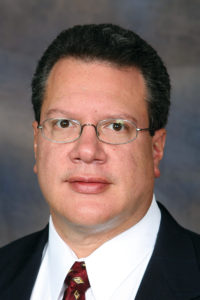ATLANTA—In a set of mutually beneficial moves, Missouri-based Warmbrodt Hotel Investments (WHI) and Massachusetts-based O’Connell Hospitality Group, LLC (OHG) have merged their brokerage firms with HREC—Hospitality Real Estate Counselors’ hotel platform, continuing the consolidation momentum permeating the lodging industry across a variety of businesses.
Both WHI Founder/President Herbert Warmbrodt and OHG Founder/Principal James O’Connell are now principals at HREC Investment Advisors (HREC-IA). Warmbrodt is remaining in Kansas City to helm Midwest operations while O’Connell will be practice leader in Boston.
Both firms merged with HREC within weeks of each other, something HREC Founder/CEO Mike Cahill characterized as “somewhat coincidental,” noting his real estate advisory firm had been in on-and-off talks with each executive over the past several years.
“The timing was not the most important part. It was really for us filling in the strategic holes we have in our platform,” said Cahill, citing both OHG’s and WHI’s strong presence and performance in their respective markets.
“For us to get boots on the ground north of Connecticut and really have that New England market was very strategic. Also, WHI has a tremendous footprint in the Midwest and Texas, and those were two areas our platform needed. We think we can better serve our clients by having people close to the pulse of what’s happening in those market areas… We saw that as a big advantage,” he said.
In coming to the merger, Warmbrodt said he’d been trying to figure out a way to expand WHI, which he founded in 2003. “I knew it was important to have growth. The other firms had been good competitors but I was finding I was losing transactions to great clients who I’ve known for 30 years because I really needed a bigger platform. It’s that simple,” he said, adding he had known Cahill and his team for at least a decade. “I was always impressed by the people they surrounded themselves with; they’ve got a really good, existing team. Quite frankly, bigger is better in our world.”
O’Connell echoed his Midwest counterpart, noting while his business was strong in New England, some larger hotel deals “began to go to larger firms with national platforms. I was being told by people who I had sold hotels to that their equity or institutional funds wanted to go with a national, brand-name company.”
OHG, founded in 2000, did 22 transactions last year with expectations of 18 transactions this year, said O’Connell. Similarly, WHI did 13 transactions last year and is on track to do nine to 10 this year, said Warmbrodt. In the same period, HREC closed on some 80-85 hotel transactions and, this year, is looking to come close to that with 70-80. HREC generally handles assets in the $3- to $70-million range.
Founded in 1994 as a pure consulting firm, HREC branched out to brokerage in 2002 and now has a 15-office national platform, having continued from page 33 grown organically and via previous M&As, such as with California-based Neptune Hospitality, which was helmed by Mike Armstrong, now an HREC-IA principal, and Memphis, TN-based The Hospitality Consulting Group, Inc., led by Patrick Culligan, also an HREC-IA principal.
O’Connell, who had previously worked with Armstrong and M. Scott Stephens, HREC-IA’s senior principal/COO, said knowing there were cultural similarities helped in the merger decision. “It was something I wanted to bring my people into. If I was going to integrate with another group, I wanted to have the same culture that we shared. That was probably the driving force in choosing HREC. It’s a great culture and has a national platform,” he said.
“We’re bringing on two extremely senior people along with their teams,” said Stephens. “It strengthens what already was a very broad platform that we had, and makes it stronger.”
Cahill stressed the over-riding approach to doing business as a team. “From my perspective, Herb and Jim are both equal partners and we’re all going to work together toward the goal of making our clients successful.”
The CEO added that the firm intends to “stick with our knitting. We do property brokerage and mortgage brokerage and the goal of the firm is to be best-in-class and to be the premier property and mortgage brokerage consultant for hotels and casinos in the country. So, as opposed to using the mergers as a move to diversify our product line, we’re actually using it as a move to make us better at what we do to become best-in-class.” Both WHI and OHG will retain their individual websites for about a year, said Cahill, as the firms transition to HREC.
As to transactions activity in the United States, Warmbrodt described it as “slowing.”
However, he felt major opportunity still exists for buyers and sellers in tertiary and secondary markets. “That has been our mainstay under [WHI]. There are still very-well-capitalized, smaller groups; they may have 10 or 15 hotels that are very active, they have excellent equity, they have excellent banking resources actively following them,” he said.
Cahill indicated the slowdown is largely due to a scarcity of major transactions and mega-hotel deals. “The beauty for us is we’re diversified and we can go down to pick up our volume in the $5- to $20-million range, which I think is going to help insulate us,” he said. He added the inventory coming with the mergers offers the same full spectrum of product as HREC.
Other factors figuring into the slowdown stem from a pricing correction prompted by “the lending community getting more conservative, new supply in certain markets, uncertainty with the upcoming elections and uncertainty with what else is going on around the globe,” suggested Stephens. “On the plus side, performance has held up pretty well in most markets. That has really been a saving grace.”
With a national platform, O’Connell felt the Boston office would now be able to work on more institutional properties than in the past. He also said the bid/ask in 2016 has “tightened up, with the publicly traded companies getting hit by Wall Street analysts who have taken the icing off the cake. The private equity groups’ return requirements caused a repricing in the first few months of the year and it took time for sellers to realize market pricing had changed. Now, it looks like it will be a strong fourth quarter from a transactions standpoint.”
Said Cahill: “If someone is looking to buy a hotel today, and if the seller has readjusted the pricing, we may be looking at 2016, 2017 as very strategic, bottom-of-the-cycle opportunities, to where someone purchasing in ’16 or ’17, five years from now, will be perceived as the genius buying at the low point of a cycle that’s only going to grow gradually for the next five to 10 years in value.”
Following these mergers, Cahill acknowledged that there is still a gap to fill in HREC-IA’s platform, notably, to have a presence north of San Francisco through the Pacific Northwest. HB




